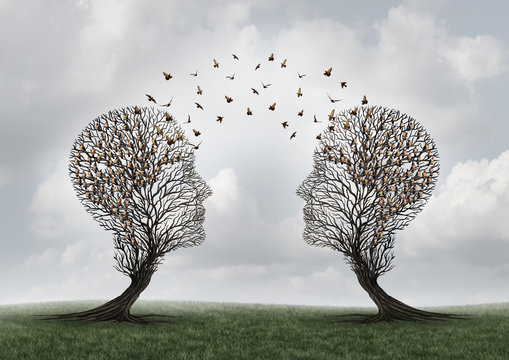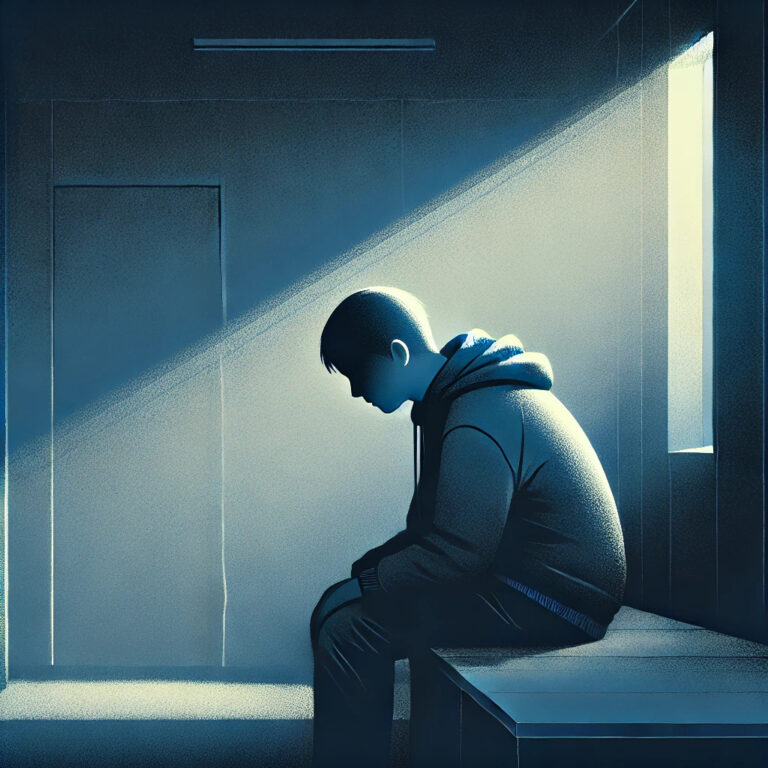Building Stronger Relationships: Dynamics, Mental Health, and Impact on Life
Relationships are an essential part of the human experience, influencing our emotional well-being, identity, and overall happiness. From romantic and familial bonds to friendships, relationships shape how we navigate life’s challenges. In this article, we’ll explore various aspects of relationships, including the impact of mental health, age gaps, long-distance dynamics, and more. We’ll also discuss what makes a relationship healthy, the differences between good and bad relationships, and how they can shape our lives.

Adult Relationships: Navigating Life’s Complexities
As we transition into adulthood, the nature of our relationships changes. In our teenage years, relationships are often more carefree, but as adults, they come with higher expectations and more significant life challenges. Whether romantic, familial, or professional, adult relationships are marked by deeper emotional connections, mutual respect, and shared goals. These relationships provide emotional stability, support, and the foundation for our future endeavors.
However, adult relationships can also be challenging. Life stressors—such as career changes, raising children, or dealing with health problems—can put pressure on even the strongest bonds. Communication, conflict resolution, and mutual respect become essential for maintaining a healthy relationship. In a successful adult relationship, both partners support each other’s growth and share in both the joys and struggles of life.
Age Gaps in Relationships: Exploring the Dynamics
Age-gap relationships—where one partner is significantly older or younger than the other—have become more common in recent years. While they are no longer as taboo as they once were, these relationships still face unique challenges.
One of the most obvious hurdles is navigating different life stages. An older partner may be thinking about retirement or dealing with health issues, while a younger partner might be focused on building a career or starting a family. Despite these differences, many age-gap relationships thrive by offering a blend of experience, fresh perspectives, and emotional growth.
The key to making an age-gap relationship work is open communication. It’s important for both partners to acknowledge and discuss their differences while also finding common ground. Respect, understanding, and shared values can help bridge the gap, creating a fulfilling and lasting partnership.

3 Harsh Facts About Long-Distance Relationships
Long-distance relationships (LDRs) can be challenging, and while some couples thrive, others may struggle with the distance. Here are three harsh realities about long-distance relationships:
- Lack of Physical Intimacy: One of the toughest aspects of a long-distance relationship is the lack of physical touch and intimacy. Physical closeness is vital for many romantic relationships, and without it, couples may feel disconnected or lonely.
- Trust and Insecurity: The absence of daily interactions and physical presence can lead to feelings of insecurity and trust issues. Misunderstandings can easily occur, and jealousy may arise if one partner feels the other is not fully committed to the relationship.
- Communication Breakdowns: Long-distance couples rely on phone calls, texts, and video chats to stay connected, but these forms of communication can lack the nuance and emotional depth of in-person interactions. This can lead to misunderstandings and frustration.
Despite these challenges, many long-distance couples make it work by staying committed, building strong communication habits, and making plans for the future. The efforts required to maintain an LDR can strengthen the bond, as both partners learn to navigate the complexities of being apart.

Anxiety in Relationships: Managing Emotional Challenges
Anxiety is a common issue that can significantly impact relationships. Whether the anxiety stems from past experiences, fears of abandonment, or external stressors like work or health concerns, it can create tension between partners.
For individuals experiencing anxiety, there may be constant worry about the state of the relationship or excessive need for reassurance from their partner. This can lead to behaviors like over-texting, seeking validation, or withdrawing emotionally, which can strain the relationship.
Managing anxiety in a relationship requires open communication and understanding. It’s important for both partners to talk about their fears, set healthy boundaries, and seek support if needed. Therapy or counseling can be helpful for individuals struggling with anxiety, as it provides tools for coping and managing emotional stress.
Autism and Relationships: Understanding the Unique Dynamics
Autism spectrum disorder (ASD) affects the way individuals process information, experience emotions, and communicate with others. These traits can create unique challenges in relationships, particularly when it comes to understanding social cues or expressing emotions.
For example, a person with autism may have difficulty reading facial expressions or interpreting non-verbal cues, making communication with their partner more challenging. Sensory sensitivities and a preference for routines can also affect the relationship dynamic.
However, many individuals with autism form successful, loving relationships. Understanding and patience are key to making such a relationship work. Partners must be willing to learn about each other’s needs and adapt to each other’s communication styles. With clear communication and mutual support, these relationships can be deeply fulfilling.

Bipolar Disorder and Relationships: Navigating Emotional Ups and Downs
Bipolar disorder is a mental health condition characterized by extreme mood swings, from manic highs to depressive lows. These mood shifts can significantly affect a romantic relationship, as the partner may not know what to expect emotionally.
During manic episodes, a person may exhibit impulsive behavior, increased energy, or irritability. Conversely, during depressive episodes, they might feel withdrawn, fatigued, and lack interest in activities they once enjoyed. This emotional rollercoaster can create stress and strain on the relationship.
For couples dealing with bipolar disorder, it’s essential to establish clear communication and be proactive about managing the condition. Medication, therapy, and support from mental health professionals can help stabilize the mood swings, allowing the couple to navigate challenges together. Support from a partner who is understanding and patient can make a significant difference in managing the condition.
Alexandra Grant and Relationships: A Modern Love Story
Alexandra Grant, the talented artist, gained media attention for her relationship with actor Keanu Reeves. Their relationship, which has been largely private, serves as an example of a healthy, mature partnership built on mutual respect, shared values, and emotional support.
Their bond exemplifies how relationships can evolve and grow over time, even if they don’t follow traditional timelines or societal expectations. The key to their successful relationship lies in their ability to communicate openly and support one another’s endeavors, both personal and professional.
Alexandra and Keanu’s relationship underscores the importance of finding a partner who shares your values and is committed to mutual growth, love, and respect.
Relationship Types: Finding What Works for You
Relationships come in all shapes and sizes, from casual dating to long-term commitments like marriage, and everything in between. Some people prefer open relationships, while others are dedicated to monogamy or polyamory. The type of relationship that works best depends on individual preferences, communication, and values.




What truly matters is not the type of relationship, but the quality of the bond. A healthy relationship is based on trust, mutual respect, and a willingness to grow together. It’s essential to find a partner who shares your relationship goals and is committed to making the connection work.
Love and Relationships: The Foundation of a Fulfilling Life
At the heart of every healthy relationship lies love—the powerful emotion that brings people together. Love can provide comfort, stability, and a sense of belonging. It’s a foundation on which individuals can build a fulfilling life.
However, love alone isn’t enough. Relationships require effort, understanding, and communication. Successful relationships are those where both partners feel heard, supported, and respected. In the end, a healthy relationship enriches our lives, fosters emotional growth, and provides the support needed to navigate life’s challenges.
Good vs. Bad Relationships: Understanding the Impact
The difference between a good and a bad relationship can significantly impact your well-being. A good relationship is built on trust, communication, respect, and mutual growth. In a healthy relationship, both partners feel supported, valued, and empowered. In contrast, a bad relationship can lead to emotional distress, feelings of isolation, and mental health issues.
Good relationships promote mental and emotional well-being, while toxic relationships can drain your energy and happiness. It’s important to recognize the signs of a bad relationship and take steps to protect your emotional health. Ultimately, healthy relationships contribute positively to your overall life satisfaction and personal growth.

Finally: The Lasting Impact of Relationships
Relationships have a profound impact on our lives, shaping our emotional and mental well-being. A healthy, supportive relationship can provide immense joy, stability, and fulfillment, while a toxic relationship can drain energy and hinder personal growth.
Whether dealing with the challenges of mental health, managing long-distance dynamics, or simply learning how to communicate better with a partner, the key to a fulfilling relationship is mutual respect, open communication, and emotional support. By prioritizing healthy relationship habits, individuals can build connections that positively impact their lives for years to come.
1. How can I improve communication with my partner?
Communication is key to a strong relationship. To improve it, try these strategies:
Listen actively: Pay attention to your partner’s words, emotions, and body language without interrupting or judging.
Be open and honest: Share your thoughts and feelings clearly, without fear of judgment.
Use “I” statements: Instead of blaming (“You never listen to me”), say “I feel unheard when…” This reduces defensiveness.
Regular check-ins: Set aside time for heart-to-heart conversations about your relationship, even if things are going well.
Non-verbal cues: Sometimes how you say something matters more than what you say, so be mindful of tone, gestures, and facial expressions.
2. What should I do if my partner and I are having constant arguments?
Constant arguments can be a sign of unresolved issues, stress, or poor communication. To address this:
Identify the root cause: Are the arguments about one specific issue, or do they stem from a deeper emotional need that’s unmet?
Take a break when needed: Sometimes taking a short break can help prevent escalation and allow you both to cool down.
Seek compromise: Aim for solutions where both partners are satisfied, not just trying to win the argument.
Couples therapy: If arguments continue to escalate or feel unproductive, a therapist can help both partners learn healthier ways to communicate and resolve conflicts.
3. How do I build trust in my relationship?
Trust takes time to develop but is essential for a strong partnership. Here’s how to build it:
Be consistent and reliable: Follow through on promises and be dependable.
Be honest and transparent: Share your feelings, thoughts, and actions openly, even when it’s difficult.
Respect boundaries: Trust grows when both partners respect each other’s personal space, privacy, and emotional needs.
Apologize and forgive: When mistakes happen, owning up to them and offering sincere apologies helps rebuild trust. Equally important is forgiving each other.
Communicate openly: Regular, honest communication helps to prevent misunderstandings and maintain trust.
4. How can we keep the romance alive in a long-term relationship?
Keeping romance alive requires effort and creativity over time. Try these tips:
Plan date nights: Regularly schedule fun, romantic activities to break up the routine, whether it’s dinner out, a walk, or a spontaneous weekend getaway.
Express appreciation: Small gestures of love—like compliments, thank-yous, or leaving a sweet note—go a long way.
Surprise each other: Unexpected surprises, from thoughtful gifts to planning a special activity, can keep the excitement alive.
Stay physically affectionate: Simple touches, like holding hands, hugging, or cuddling, help maintain physical connection.
Try new things together: Explore new hobbies or experiences, which can bring you closer and create lasting memories.
5. What should I do if I’m feeling neglected in my relationship?
Feeling neglected can happen if needs aren’t being met or if there’s a lack of attention or emotional connection. To address this:
Talk about your feelings: Be honest with your partner about how you’re feeling, using “I” statements to avoid blaming them.
Express your needs clearly: Sometimes partners don’t realize what the other person needs unless it’s communicated directly. Let them know what would make you feel more valued.
Listen to their perspective: There may be reasons why they haven’t been as attentive. Try to understand their point of view and discuss ways to improve the relationship.
Quality time: Suggest activities or moments you both can share together, focusing on deepening your emotional bond.
Consider therapy: If the neglect continues or if it feels like a deeper issue, couples counseling may help work through these feelings and strengthen the relationship.







